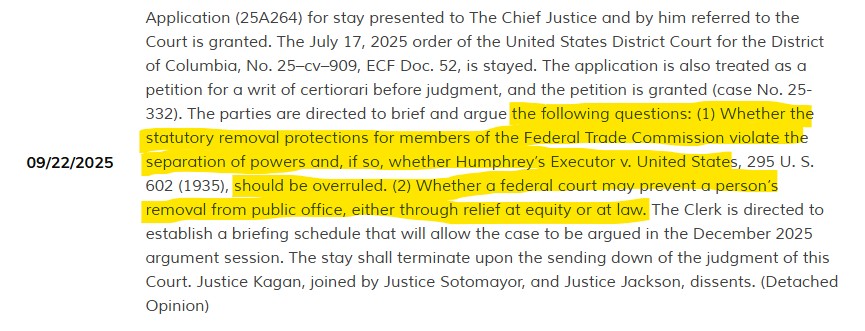Hope it's wrong, but I'm hearing through the grapevine about this bonkers plan: Trump would adjourn both Houses of Congress under Article II, section 3, and then recess-appoint his Cabinet.
As predicate for Trump's exercise of adjournment power, one House of Congress would seek other House's consent to adjourn and be denied. So Speaker of House would need to be complicit in evisceration of Senate's advice-and-consent role.
House Speaker Mike Johnson needs to say NO to this right away.
Not sure how this could go forward, though, if Senate agrees that House can adjourn but Senate itself remains in session. Maybe that explains the intense interest in getting Rick Scott as Senate majority leader. Or maybe there is some oh-so-clever workaround.
Easy for Trump White House to achieve a lot with Republican majorities in Senate and House. Why cook up crazy schemes? Hope grapevine rumor is wrong.
• • •
Missing some Tweet in this thread? You can try to
force a refresh





